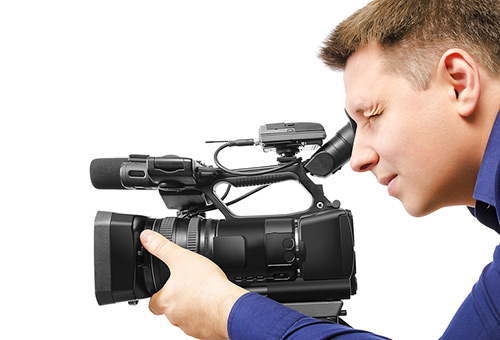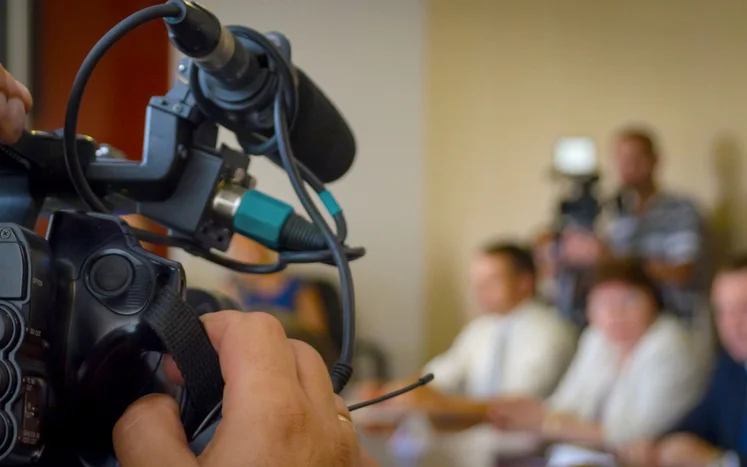The Duty of Legal Videography in Depositions and Trials
Legal videography has emerged as a vital device in both depositions and trials, providing a multifaceted strategy to recording witness testaments. As lawful experts increasingly recognize its worth, it triggers a much deeper exam of exactly how these visual records can affect juror understandings and trial results.
Value of Legal Videography
Lawful videography plays a pivotal duty in the documents and presentation of depositions and trials. This specific field combines technical abilities with lawful expertise to produce a trusted document of procedures that can significantly affect situation results. The appearance of lawful videography improves the understanding of witness testimony, enabling jurors and courts to observe not only the spoken words but additionally the behavior, emotions, and body language of the witnesses.

The significance of legal videography expands beyond the court room; it additionally plays a vital duty in protecting evidence for future referral, whether for allures or more lawsuit. Thus, its integration right into the legal procedure is necessary for making sure a reasonable and exact depiction of the truths, eventually adding to the pursuit of justice.

Process of Legal Videography
While recording the nuances of depositions and tests, the procedure of lawful videography involves several essential steps that ensure high-grade, precise recordings. Initially, an expert legal videographer prepares by assessing the case products and comprehending the details needs of the deposition or trial. This preparation consists of acquainting themselves with the participants and the context, which helps in catching essential information.
On the day of the recording, the videographer sets up the necessary equipment, which usually consists of high-def electronic cameras, microphones, and correct lights. Making certain optimum angles and audio top quality is critical, as it straight affects the efficiency of the recording. The videographer interacts with attorneys and individuals to develop methods, making certain that every person understands the recording process.
During the deposition or trial, the videographer meticulously videotapes the process, paying close attention to both verbal and non-verbal hints. legal videography. This consists of recording the demeanor and reactions of witnesses and attorneys. After the session wraps up, the videographer might modify the video for clarity and conformity with legal standards, generating an end product that properly shows the proceedings for future referral and usage in lawful contexts
Advantages in Depositions
The unification of videography in depositions supplies countless benefits that enhance the total process of collecting proof. One key advantage is the capacity to record witness testaments with aesthetic and acoustic integrity, supplying a much more precise representation of the witness's behavior, tone, and body language. This multidimensional approach allows attorneys and courts to evaluate reliability better get redirected here than typical written transcripts alone.
Furthermore, videographed depositions work as a powerful device for preserving statement. Needs to a witness ended up being not available for test, their taped deposition can be played in court, making sure that their evidence continues to be accessible and pertinent. This aspect considerably minimizes the danger of shedding essential information that can affect situation results.
Moreover, making use of lawful videography advertises far better preparation for attorneys. Assessing video footage enables lawful teams to analyze and refine their techniques, determining toughness and weaknesses in their situations. This primary benefit can result in more compelling presentations in court.
Lastly, videography improves the overall professionalism and trust of the deposition process, instilling self-confidence in clients relating to the thoroughness of their legal depiction. By leveraging modern technology, lawyers can significantly enhance the Find Out More efficiency of depositions.
Effect on Tests
In many tests, the combination of videography can dramatically influence the discussion of proof and the court's assumption. Lawful videography try here records witness testaments and critical proof in a dynamic layout, allowing jurors to engage with the product on numerous levels. This visual element boosts the storytelling element of a test, providing context and psychological vibration that standard text-based evidence might do not have.
Moreover, video recordings can serve as effective devices for impeachment throughout cross-examination. When inconsistencies develop in between a witness's prior declarations and their court room statement, video proof supplies an objective reference that can guide jurors' viewpoints. This immediacy and clarity can strengthen the reputation of a celebration's narrative while simultaneously threatening opposing disagreements.
Additionally, making use of videography can assist streamline complex information, making it more obtainable to jurors who might have a hard time to grasp detailed details offered entirely through verbal testament. By integrating visuals with auditory info, lawful videography can improve retention and understanding, inevitably influencing the court's decision-making process. The effect of videography in tests extends past plain aesthetic appeals; it plays a critical function in forming the lawful landscape and end results.
Future Trends in Legal Videography
As we look towards the future of legal videography, several arising trends guarantee to reshape its role within the court. One substantial trend is the combination of expert system (AI) in video evaluation and editing and enhancing - legal videography. AI can streamline the process of identifying vital moments in recorded depositions, permitting attorneys to promptly access appropriate content, consequently improving effectiveness in instance prep work
Additionally, the rise of virtual reality (VR) and enhanced truth (AR) modern technologies is anticipated to change just how jurors experience proof. By submersing jurors in a substitute setting, these modern technologies can provide a more profound understanding of complex scenarios, causing even more educated considerations.

Moreover, the boosting demand for remote depositions, accelerated by the COVID-19 pandemic, will likely continue. Lawful videographers will certainly require to adapt to new software and systems to make certain high-quality recordings in digital settings.
Finally, the expanding focus on data safety will certainly demand stricter procedures for keeping and sharing video proof. As the legal landscape evolves, lawful videographers should remain abreast of these fads to keep their relevance and efficiency in the judicial procedure.

Verdict
In summary, lawful videography offers a crucial function in the judicial process, improving the honesty of depositions and tests. As innovation continues to advance, lawful videography is poised to more transform its duty within the lawful landscape.